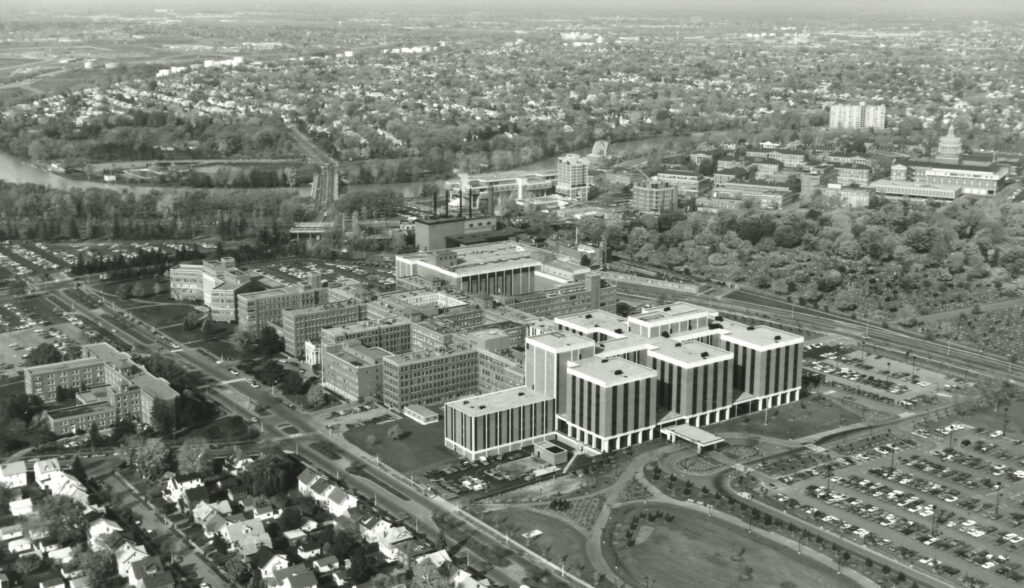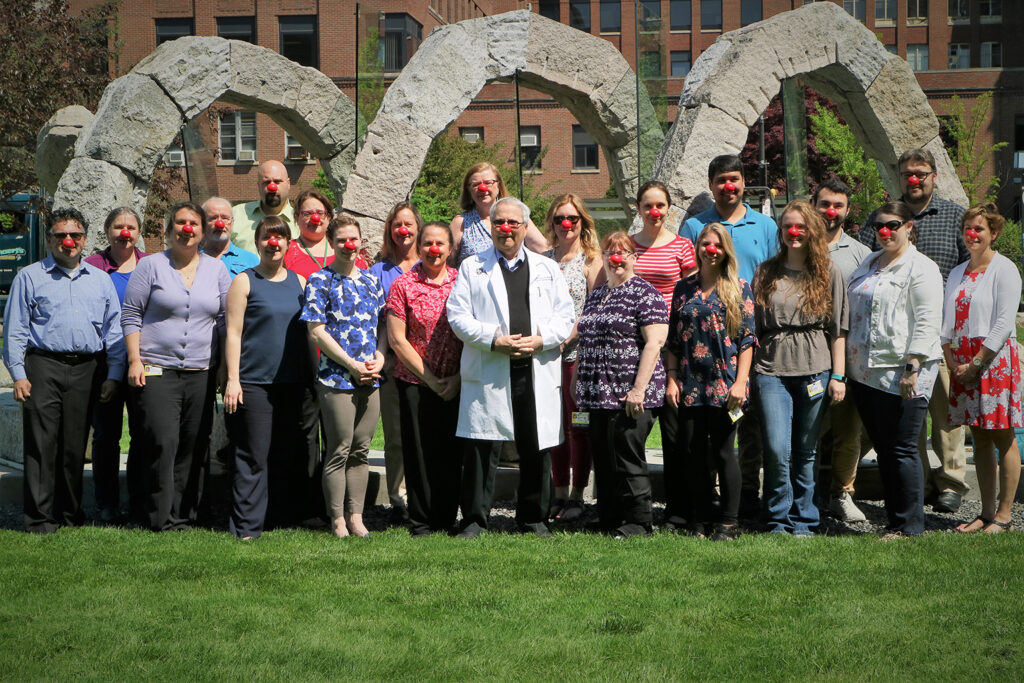An original Research Base serving the National Cancer Institute (NCI) since 1983 as part of the Community Clinical Oncology Program (CCOP), the URCC NCORP RB is a legacy academic Research Base with 35+ years of continuous funding to conduct cancer research with a primary sustained focus on alleviating toxicities and side effects stemming from cancer and its treatments.


In June of 1976, the NCI funded a planning grant to the URCC entitled: “Psychosocial Collaborative Group for Cancer Control: PSYCOG.” The PI was Dr. Arthur Schmale with Co-Is Dr. Leonard Derogatis of Johns Hopkins, Dr. Jimmie Holland of Memorial Sloan Kettering, and Dr. Gary Morrow of the University of Rochester. PSYCOG demonstrated that is was possible to conduct cancer supportive care clinical trials by partnering with community-based oncology clinics, which allowed cancer patients with limited access to large academic cancer centers to have access in their home communities to clinical trials.
Subsequently, the NCI founded the Community Clinical Oncology Program in 1983. The URCC was the first CCOP Research Base funded in an academic cancer center and remains one of only two academic Research Bases to be continually funded since that time.
The URCC Research Base developed an exclusive focus on supportive care research in 1991 due to a high clinical need to lower the toxicity and side effect burden experience by patients undergoing treatment for their cancer.
In 2014, the URCC was among the 7 NCI-funded Research Bases to successfully transition from a Community Clinical Oncology Program Research Base to an NCORP Research Base.
Our supportive care research foci span four primary areas :
- Cancer Control Research: research that focuses on identifying the most prevalent and noxious toxicities and side effects stemming from cancer and its treatments, understanding their etiology and pathophysiology, and discovering novel and effective therapies to treat them.
- Cancer Care Delivery Research: research focused on assessing and addressing system-level barriers to delivery of high-quality, effective cancer care.
- Translational Research: research focused on the psychosocial, biological, and physiological mechanisms underlying toxicities and side effects.
- Health Equity Research: research focused on identifying health disparities, diversifying accrual to our clinical trials, and developing novel and effective supportive care therapies that actually work for under-served populations.
All of our foci are aimed at improving outcomes for cancer patients, survivors, and caregivers. The URCC nationwide cancer research network has grown substantially and now includes 20+ NCI-funded NCORP Community Affiliates with a total of 660+ geographically distinct community-based oncology practices across the country.

